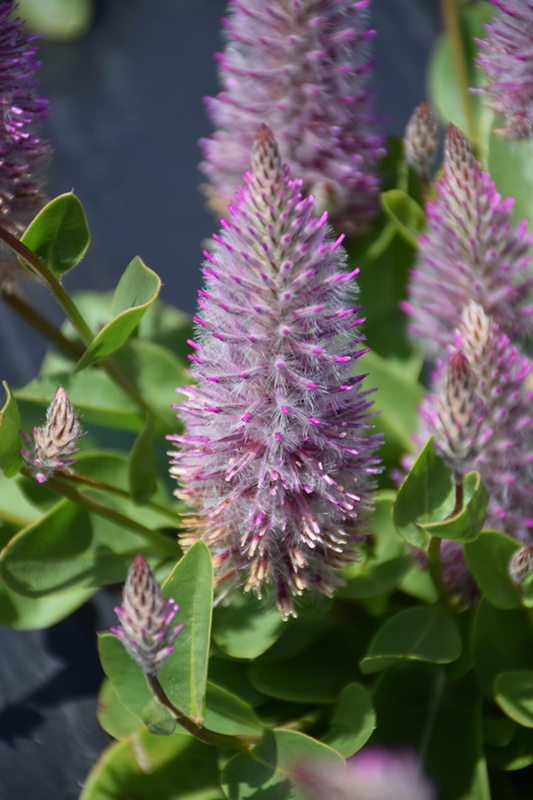Joey Mulla Mulla
Description
A short lived perennial treated largely as an annual; interesting conical flower spikes of silvery pink persist all season long; a beautiful, fine container plant or impressive when massed in the garden; tolerant of hot and dry conditions
Landscape Attributes
Joey Mulla Mulla is an herbaceous annual with an upright spreading habit of growth. It brings an extremely fine and delicate texture to the garden composition and should be used to full effect.
Joey Mulla Mulla is recommended for the following landscape applications;
Planting & Growing
Joey Mulla Mulla will grow to be about 18 inches tall at maturity extending to 24 inches tall with the flowers, with a spread of 15 inches. When grown in masses or used as a bedding plant, individual plants should be spaced approximately 12 inches apart. Although it's not a true annual, this plant can be expected to behave as an annual in our climate if left outdoors over the winter, usually needing replacement the following year. As such, gardeners should take into consideration that it will perform differently than it would in its native habitat.
This plant should only be grown in full sunlight. It prefers dry to average moisture levels with very well-drained soil, and will often die in standing water. It is considered to be drought-tolerant, and thus makes an ideal choice for a low-water garden or xeriscape application. It is not particular as to soil type or pH. It is somewhat tolerant of urban pollution. This is a selected variety of a species not originally from North America.
Joey Mulla Mulla is a fine choice for the garden, but it is also a good selection for planting in outdoor containers and hanging baskets. With its upright habit of growth, it is best suited for use as a 'thriller' in the 'spiller-thriller-filler' container combination; plant it near the center of the pot, surrounded by smaller plants and those that spill over the edges. Note that when growing plants in outdoor containers and baskets, they may require more frequent waterings than they would in the yard or garden.

